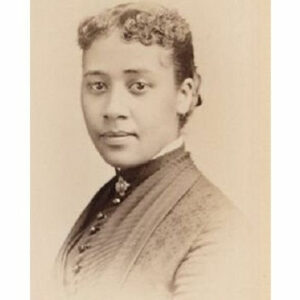Anna Julia Cooper was an educator, author, and scholar in the United States who is best remembered for her pioneering crusade for the advancement of African-American women. She was a bright and gifted child born as a slave. After completing her elementary education, she became a teacher but was forced to resign following her marriage. It was a rather unfortunate situation, as her husband died two years later, prompting her to return to further her education. She had a lengthy and distinguished career as a teacher and was also a published author. Her first book, ‘A Voice from the South: By a Woman from the South,’ garnered widespread critical acclaim and helped raise awareness about slavery and racism against black women. She later completed her doctoral studies, becoming only the fourth African-American woman to earn a Ph.D. in any field. She remained an outspoken supporter of women’s education and racial and gender equality for the remainder of her life. She had an eventful life that took her from slavery’s darkness to the dawn of the civil rights movement. As a teacher and thinker, she promoted women’s advancement through education and social progress, thereby affecting the lives of countless people.
Childhood & Adolescence
She was born on August 10, 1858, in Raleigh, North Carolina, USA, to Hannah Stanley Haywood, a slave who worked for landowner George Washington Haywood. George is thought to be the father of all seven of Stanley’s daughters, including Anna.
At the age of ten, she was awarded a scholarship to a newly founded school, St. Augustine’s Normal School and Collegiate Institute, which was established to educate and train teachers for newly liberated slaves.
Later Decades of Copper
In 1881, she transferred from St. Augustine’s to Oberlin College on a tuition scholarship, having already earned distinction in liberal arts and mathematics. She earned her BA in 1884, making her one of the first African American women to do so.
Following graduation, she taught for a brief period at Ohio’s Wilberforce University and then for one year at St.
Augustine. She then enrolled at Oberlin College, where she earned a Master of Science in mathematics in 1887.
In 1887, she was offered a position on the faculty of what was then known as the Washington Colored High School (later known as the M Street School). She began writing and publishing the work that would earn her scholarly distinction and renown during this time in Washington.
In 1892, she published her best-known work, ‘A Voice from the South: Written by a Woman from the South,’ which is widely regarded as one of the earliest expressions of Black feminism. It was her only published work, despite the fact that she delivered numerous speeches advocating for civil and women’s rights.
She was appointed principal of the school in 1902. She was adamant that all students, regardless of race or gender, receive a quality college education, not just vocational training. However, she was asked to abandon her non-vocational approach, which she refused, forcing her to resign as principal.
After that, she accepted a position as a language instructor at the Lincoln Institute in Jefferson, Missouri, where she remained for four years. During this time period, she also fought her dismissal from M Street, and was eventually reinstated in 1910.
In 1914, she began doctoral studies at Columbia University but later transferred her credits to the University of Paris in France.
In 1925, she completed her dissertation, ‘France’s Attitude Toward Slavery During the Revolution,’ and became the fourth African-American woman to earn a doctorate.
She became president of Frelinghuysen University in 1930, when she retired from M Street School at the age of 72.
Frelinghuysen University is an institution that provides education to older, employed African-Americans.
Not only was she a writer and educator, but she was also a social commentator. She attended several conferences, including the World’s Congress of Representative Women at the 1893 Chicago World’s Fair, the Woman Suffrage Congress in 1893, and the Pan-African Conference in London in 1900, where she delivered notable speeches on racial and gender equality, as well as education.
She was elected as the first and only female member of the American Negro Academy. Additionally, she was a founding member of the Colored Women’s YWCA and the Colored YMCA.
Significant Works of Copper
In 1892, she published her best-known work, ‘A Voice from the South: by a Black Woman of the South.’ The book is widely regarded as the first black feminist tract. It is a collection of essays emphasizing the nature and role of African American women.
Personal History and Legacies
In 1877, while she was still teaching at the school, she married an older teacher, George C. Cooper, and resigned due to the social obligations of the time. Regrettably, her husband died two years later. Later in life, she returned to teaching and lived as a widow for the remainder of her years.
She died of a heart attack in Washington, D.C., on February 27, 1964, at the age of 105. She was laid to rest alongside her husband in Raleigh’s City Cemetery.
Estimated Net Worth
The net worth of Copper is unavailable.


